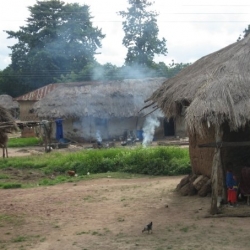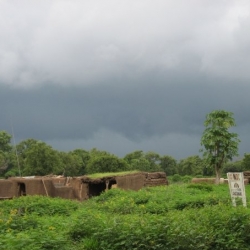Graduate Program: PhD
Supervisor: Rob Kozak and Howie Harshaw
Region of Interest: Ghana
Tags: CommunityEcotourismEmpowermentSocial
What is your research project about?
Community-based ecotourism ventures have been defined as reconciling wildlife and habitat conservation with the economic and social growth of developing communities. However, community ecotourism has been criticized for recurrently failing to deliver on promises of community-level benefits. Numerous hypotheses have attempted to explain why ecotourism often fails (e.g., isolation, lack of capacity, marketing, green washing, financing, size of the ecotourism project, lack of environmental ethics). But social capital and gender dimensions of community ecotourism have largely been unexplored, despite their potential relevance and some initial attempts by scholars who have related gender equity and social capital to well-being as well as healthy economies and social cohesion.
Some scholars have suggested several approaches to exploring social capital and gender issues as they relate to successful natural resource management and community empowerment. One approach that seems particularly relevant, understudied and potentially very valuable is the study of communities’ social networks that incorporates a feminist political-ecology lens.
I propose to investigate the degree to which social networks, trust, and common norms along with gender issues affects the community empowerment of ecotourism projects in the Volta Region of Ghana.
Why did you choose to do research in this field/region?
Ghana’s community ecotourism model has been recognized by the UN as a pioneer in Africa. Over the past fifteen years, NGOs in Ghana collaborating with other public agencies and with support from international development partners have developed ecotourism projects to assist in poverty alleviation and forest conservation in rural areas. In part, Ghana’s social and political stability has enabled the development of community projects. Also, because of the low profile of the ecotourism industry (Ghana is not yet as well known for its wildlife, compared to other African countries), NGOs have had a unique opportunity to link conservation, ecotourism development and poverty reduction by testing the radical experiment of a fully community owned and controlled protected areas model. All these conditions make Ghana a suitable, interesting country of study, particularly in the Volta Region, where there is a high concentration of community ecotourism projects.
What is the relevance of your research?
My research will contribute to covering the research gap at the intersection of social capital, gender, empowerment and ecotourism by studying the role social capital and gender plays in community empowerment arising from ecotourism projects. Potentially, my research will enrich the literature on development and feminist political ecology and could provide guidance to the management of community-based natural resources.
Outside academia, social capital and gender equity are topics deemed to be highly relevant by international cooperating agencies engaged in both poverty alleviation and environmental sustainability. The UN Entity for Gender Equality and the Empowerment of Women, and the World Bank Poverty Net site on social capital are just two examples of initiatives to investigate, monitor and incorporate social capital and gender equality at the global level for the development of a more sustainable present and future. Potentially, lessons learned from this study will inform policy on community development.
Links
Lab:
http://www.fact.ubc.ca/
Collaborator:
http://www.ncrc-ghana.org/

